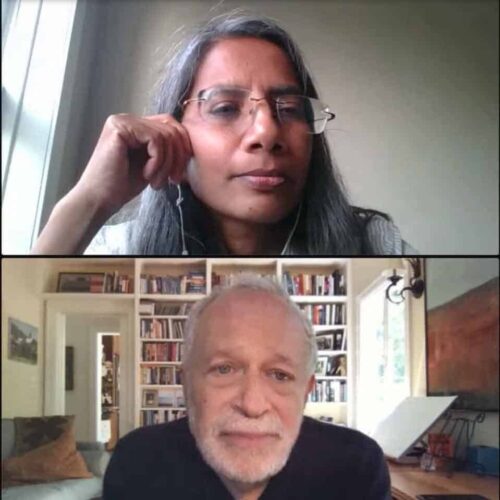Introduction
The Republican party was not always the party of tax cuts, but it has productively packaged the promise of them and the idea of trickle-down economics to gain power, three experts on economic policy and politics said Thursday in an online discussion hosted by the Center for Public Integrity.
The event was moderated by Sally Herships, host and co-executive producer of Public Integrity’s new podcast ‘The Heist,’ a five-part investigative series on how power works in America under President Donald Trump. Herships kicked off the event by asking whether people are better off as a result of Trump’s 2017 Tax Cuts & Jobs Act.
The consensus: It depends who “we” is. “If you’re a working person, if you are working class, if you’re an hourly wage earner, you almost invariably got nothing,” said economist and former Secretary of Labor Robert Reich. “There is very little evidence that there has been any economic growth from this.”
“Overall, are we as a nation better off? Probably not,” said Washington and Lee University historian and author Molly Michelmore. She echoed Reich’s sentiment, saying wealthy people and corporations have made out particularly well.
While the tax cuts haven’t left us better off, the Republican party’s effort to brand itself as a responsible steward of the economy has been successful, said award-winning sociologist and author Monica Prasad. And that idea is especially appealing to working-class voters.
But Michelmore said this messaging doesn’t align with historical facts. “Over the last 30 or 40 years, we’ve had a series of economic crises during Republican administrations that, essentially, Democratic administrations have had to clean up,” she said.
The 2017 tax bill will burden the U.S. with an additional $1.9 trillion in debt over 11 years. Reich argued that kind of money would have been better spent on public education, infrastructure and health — especially as the country confronts a pandemic.
Herships asked whether implementation of a wealth tax, which Sen. Elizabeth Warren advocated when she sought the Democratic nomination for president earlier this year, is a realistic goal. Prasad said the idea has broad public support. “We were actually the country that pioneered taxing the wealthy,” she said.
But Michelmore said that getting such a proposal through Congress has proven to be difficult. The first episode of Public Integrity’s new podcast explores the influence that wealthy campaign donors have on Congress and the role that one played in getting the 2017 tax cuts passed.
Reich said Democrats need to take some responsibility and make a case for public investment, instead of worrying about the national debt. He urged Democratic presidential nominee Joe Biden to do so in the lead-up to the November election.
Michelmore said the simplicity of Republicans’ message, “We cut taxes,” gives them an advantage. Democrats should settle on a coherent, pro-economy, pro-jobs message in order to counter that, she said.
“It is a messaging question in some ways,” Michelmore said. “And the GOP has been better at that over the last 40 years than the Democratic party has been.”
This discussion is part of a series of online events hosted by Public Integrity, including a Sept. 9 forum on protecting the right to vote this November.
Read more in Inside Public Integrity
Inside Public Integrity
How they did it: News collaboration exposes how special interests use model legislation
Hidden Epidemics
Navigating mental health needs after natural disasters
A Public Integrity discussion dug into a part of the disaster recovery process that the country does not manage well.



Join the conversation
Show Comments